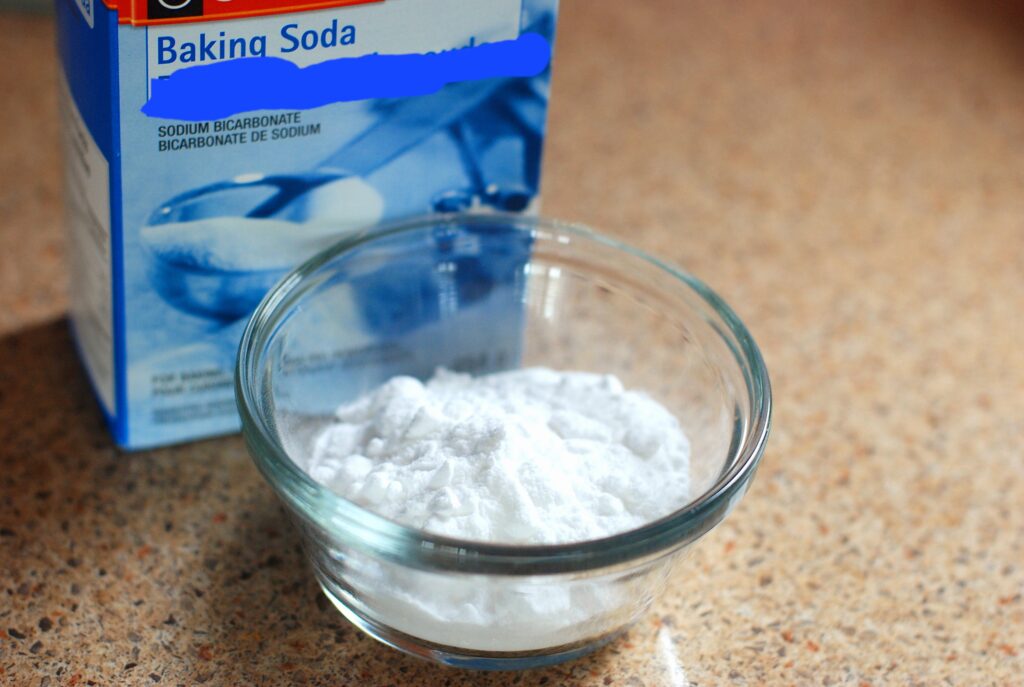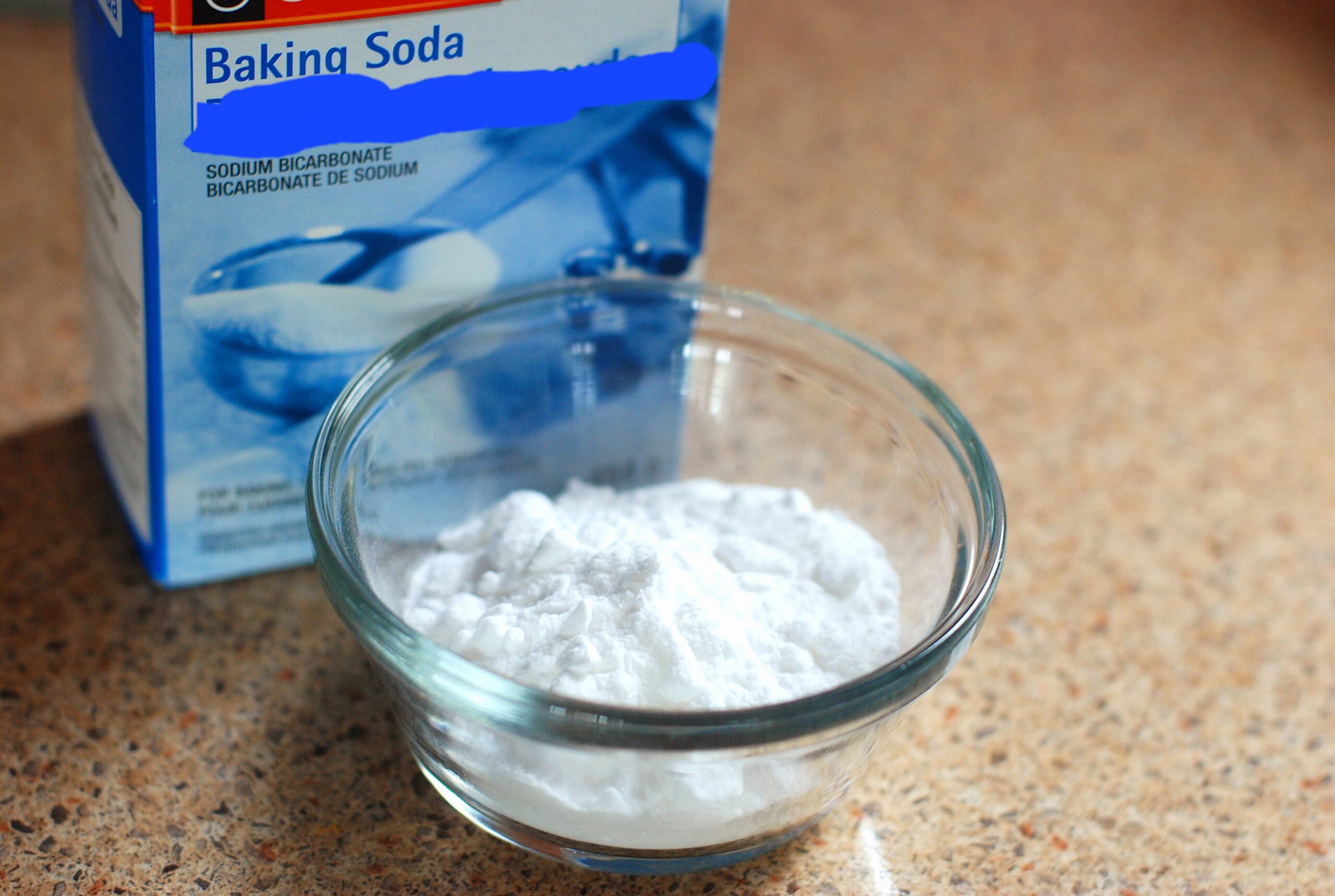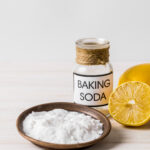
Overview
Baking soda, also known as sodium bicarbonate, is a powerful compound found in most households, valued for its versatile uses in baking, cleaning, and health. When dissolved in water, baking soda can offer various health benefits, from aiding digestion to improving athletic performance. However, like any remedy, it should be used with caution due to potential side effects. This guide delves into the health advantages, potential risks, nutritional facts, and best practices for using baking soda water safely and effectively
Table of Contents
Health Benefits of Baking Soda Water
- Digestive Aid and Heartburn Relief
One of the most popular uses of baking soda water is for digestive support, especially for alleviating acid reflux and heartburn. Its alkaline nature helps neutralize stomach acid, providing temporary relief from symptoms of acid reflux and indigestion.
- Enhanced Hydration and Electrolyte Balance
Baking soda water can be beneficial for hydration, particularly for athletes or individuals exposed to high temperatures. With a notable sodium content, it can help replenish electrolytes lost through sweat, potentially aiding in hydration balance. However, it’s best to consume in moderation
Related : Health Benefits of Drinking Lemon Water
- Improved Exercise Endurance and Performance
For athletes, baking soda water may help delay fatigue by buffering lactic acid buildup in muscles during high-intensity activities, potentially improving endurance and performance. However, guidance from a healthcare provider is advised for safe use.
- Oral Health Support
Baking soda’s alkaline properties also support oral health by neutralizing acids in the mouth. As a gentle mouthwash, it can help reduce plaque and freshen breath
Nutrition Facts of Baking Soda Water
While baking soda water contains no calories, proteins, or fats, it does have a high sodium content. Here’s a breakdown of its primary nutritional component:
- Sodium: Half a teaspoon of baking soda contains approximately 630 mg of sodium, a significant amount given that the recommended daily intake of sodium is around 2,300 mg for most adults. This high sodium content can be beneficial for electrolyte balance but requires caution for those with sodium-sensitive health conditions like hypertension or kidney disease.
Baking soda water provides no additional nutrients but contributes a substantial amount of sodium, making it helpful for electrolyte balance but something to use sparingly, especially for those monitoring their sodium intake
Related : Anti-Inflammatory Foods
Potential Risks and Side Effects of Baking Soda Water
While baking soda water has various benefits, it’s important to recognize the risks and side effects associated with excessive consumption.
Common Side Effects
Some of the more common side effects of baking soda water include:
- Nausea and Bloating: Drinking too much can lead to nausea, bloating, and stomach discomfort.
- Electrolyte Imbalance: Excessive use may disrupt the body’s natural electrolyte balance, particularly sodium and potassium levels, which are essential for healthy nerve and muscle function.
To reduce these risks, it’s advisable to limit consumption to occasional use and in small doses.
Rare but Serious Health Risks
Related : How to Boost and Balance Your Metabolism Naturally
In rare cases, consuming large amounts of baking soda can lead to severe health issues:
- Metabolic Alkalosis: Overuse can cause metabolic alkalosis, a condition where the body’s pH becomes too alkaline, potentially leading to muscle spasms, irritability, and an irregular heartbeat.
- Gastric Rupture: Due to the gas produced when baking soda reacts with stomach acid, there is a risk of gastric rupture if excessive amounts are consumed, especially immediately after a meal.
- Toxicity: High doses can disrupt the body’s natural acidity, leading to toxicity symptoms like muscle weakness, confusion, and seizures
At-Risk Populations
Certain individuals should avoid or limit their use of baking soda water, including:
- Those with Kidney or Heart Disease: High sodium intake can exacerbate these conditions.
- Pregnant Individuals and Children: Safety data is limited for these groups.
- Those on Certain Medications: Baking soda may interact with some medications, including antibiotics and medications for high blood pressure
Related : The Warning Signs of a Stroke
Consulting a healthcare provider before using baking soda water is essential, especially for those with underlying health conditions or those taking medications.
Tips for Safe Consumption of Baking Soda Water
To safely enjoy the benefits of baking soda water, consider the following tips:
- Storage: Keep baking soda in a dry, cool area away from sunlight, as moisture can impact its effectiveness.
- Dosage: A standard recommendation is no more than ½ teaspoon in a glass of water. Starting with a lower dose and increasing only if comfortable can help reduce side effects.
- Frequency: Limit intake to occasional use and avoid continuous use for more than two weeks without consulting a healthcare provider.
- Timing: Drinking baking soda water with a carbohydrate-rich meal may help minimize digestive side effects.
Practical Household Uses for Baking Soda Water
Beyond its health applications, baking soda water is highly versatile in household use. Here are some ways to incorporate it into daily life:
- Mouthwash: For fresh breath, dissolve ½ teaspoon of baking soda in water and rinse as a natural mouthwash.
- Teeth Whitening: Baking soda’s abrasiveness can help remove surface stains, though it should be used sparingly to avoid enamel erosion.
- Deodorant: Baking soda neutralizes odors, making it an effective natural deodorant
The Takeaway
Baking soda water is a simple yet powerful solution that offers various benefits, from aiding digestion to supporting hydration and oral health. While its benefits are numerous, it’s important to approach its use with caution due to the potential for side effects, particularly for those with specific health conditions. By understanding its properties, risks, and safe usage guidelines, you can make informed decisions on how to use baking soda water effectively as part of a healthy lifestyle
FAQs About Baking Soda Water
- What are the main health benefits of drinking baking soda water?
Baking soda water can help relieve heartburn, support digestion, enhance hydration, improve exercise endurance, and freshen breath due to its alkaline properties. However, it should be used occasionally and in moderation. - How much baking soda should I add to water for health benefits?
Typically, half a teaspoon of baking soda in a glass of water is recommended. Avoid exceeding this amount, as higher doses can lead to side effects like nausea or electrolyte imbalance. - Are there any risks to drinking baking soda water daily?
Yes, daily consumption can cause side effects, including nausea, bloating, electrolyte imbalance, or more severe conditions like metabolic alkalosis. It’s best to limit usage and consult a healthcare provider for long-term use. - Who should avoid drinking baking soda water?
People with kidney disease, heart disease, high blood pressure, pregnant individuals, and young children should avoid baking soda water due to its high sodium content. Additionally, it can interact with certain medications, so anyone taking regular medications should consult a doctor first. - Can baking soda water help with workout performance?
Yes, for some athletes, it may help delay muscle fatigue by buffering lactic acid buildup. However, this benefit is usually short-term, and a healthcare provider should be consulted before regular use in athletic routines. - Does baking soda water have any nutritional value?
While it doesn’t contain calories, protein, or fat, it has a high sodium content, which can aid in electrolyte balance. Be cautious with intake, especially if on a low-sodium diet, as too much sodium can pose health risks.












